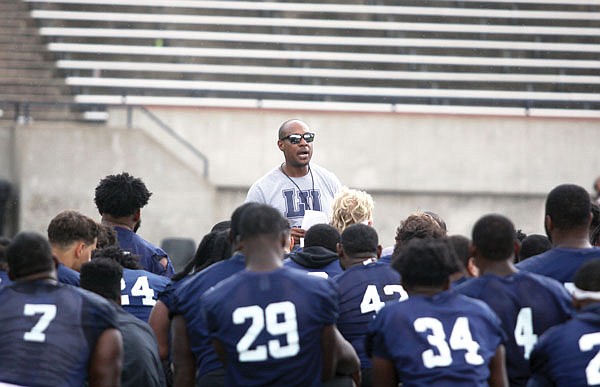Missouri joined a growing list of states passing laws to protect student athletes' ability to be paid for their likeness and athletic reputation after Gov. Mike Parson signed sweeping higher education legislation Tuesday.
House Bill 297, sponsored by state Rep. Wayne Wallingford, R-Cape Girardeau, contains a number of provisions, including allowing student athletes to be compensated for their image, creating the Students' Right to Know Act and removing tuition caps.
The legislation protects student athletes' ability to earn compensation for use of their name, image, likeness rights and athletic reputation - going against decades-long precedent from the National Collegiate Athletics Association.
The legislation prohibits public and private higher education institutions from barring student athletes from participating in sports or revoking grants and stipends because they get paid or hire professional representation.
Student athletes cannot enter into contracts that conflict with the athletic team's contract, must hire attorneys licensed in Missouri and can sue for violations, according to the new Missouri law.
Institutions that enter into agreements that require a student athlete's likeness are also required to conduct a financial development program.
Missouri is the latest state to enact laws allowing student athletes to get paid. California, Georgia and Florida are among other states that have passed similar legislation. Proponents argue more states are likely to follow suit to remain competitive in recruiting the nation's top student athletes.
The NCAA Board of Directors decided June 30 to suspend its restrictions on college athletes' receiving compensation for participating in partnerships such as sponsorship or endorsement deals.
The student athlete compensation provision is part of a larger higher education omnibus bill that had narrower beginnings focused on academic offerings at Southeast Missouri State University.
Bill Foster, Wallingford's legislative assistant, said the bill was important for their district, home of SEMO. The new law designates SEMO with a statewide mission in visual and performing arts, computer science and cybersecurity.
"The main reason that the representative wanted to get this passed is to be able to introduce cybersecurity courses and degrees there at Southeast Missouri State University, although we did have some very good amendments that were attached to our legislation," Foster said.
SEMO is one of Missouri's five NCAA Division I schools, which include University of Missouri, University of Missouri-Kansas City, Missouri State University and St. Louis University.
Athletes at larger schools are most likely to see large gains as a result of this kind of legislation, but student athletes at every level are eligible.
Lincoln University Blue Tigers, for example, could start earning money from sponsorships and endorsements as athletes in the Division II level.
Foster said HB 297 puts Missouri athletes on the same level as athletes in other states adopting similar laws.
"This relieves (student athletes) and allows them to go ahead and accept money for being on television as a sponsor of a product without the association removing them from the possibility of playing," Foster said. "It just gives them more freedom to do what others are doing."
Foster said the addition of some high-profile amendments helped fill out the legislation and garner support from around the state.
The Students' Right to Know Act, which takes effect Jan. 1, was among those added amendments.
The Students' Right to Know Act requires the Missouri Department of Higher Education and Workforce Development to collect and publish information considered helpful for students in considering the costs of public colleges, universities and alternative career paths.
MDHEWD will be required to publish information on the state's most in-demand jobs, as well as their starting salary and required education levels, and the average cost, monthly student loan payment and three-year student loan default rate for public higher education and vocational schools to its website. MDHEWD will also post completion rates for apprenticeship programs, high school credential programs, career and technical education programs, and military first-term enlistments, as well as the average starting salary for graduates of public higher education and vocational schools.
The document is also required to be sent to the Missouri Department of Elementary and Secondary Education to be distributed to high school guidance counselors.
Another provision of HB 297 removes tuition limits currently in place for community colleges and public universities.
Starting July 1, 2022, colleges and universities can raise tuition past current limits, which are tied to a formula adopted through the Higher Education Student Funding Act in 2018.
Public colleges and universities that exceed the tuition formula are required to notify MDHEWD and cannot implement required course fees.

